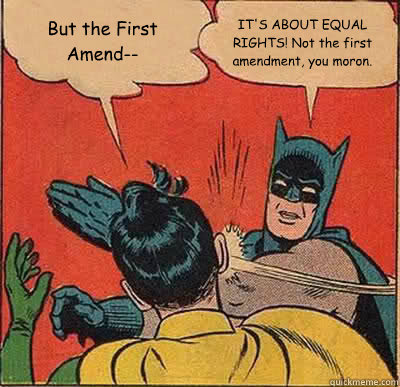
Although women never got an Equal Rights Amendment, Craig v. Boren (1976) gave the second best thing: An intermediate scrutiny test.
Craig v. Boren facts are easy to digest. In Oklahoma, Curtis Craig, aged between 18 and 21, was denied beer because a statute said males must be over 21 while females under 18. He brought suit claiming an Equal Protection violation.
The decision was 7 to 2. The majority opinion was enough to make law. If the vote had been a plurality, states could of followed some lesser court decision. Justice William Brennen put together this holding.
The issue in the Craig case was did Oklahoma’s statute violate the Equal Protection Clause of the Fourteenth Amendment by setting different drinking ages for men and women?
The Craig case set the following rule: Under the constitution, gender classifications made by states must satisfy the intermediate scrutiny test.
The case held the following: Oklahoma must show that it’s means (statute) are substantially related to the important government end of achieving highways safety if regulating in a sex-discriminatory way.
Interestingly, Justice William J. Brennan made a point regarding social statistics. He said state statistics are not enough to invalidate intermediate scrutiny. For Brennen, statistical precision didn’t pass mustard.
Historically, gender discrimination was only given rationale basis review before 1976. Basically, the state could pass any sexually discriminatory statute as long as it had a legitimate reason. Many laws discriminated against women and it was legal.
By the way, an equal rights amendment was needed in the 1970s. However, no such amendment got off the ground. Instead, we got an intermediate test to deal with gender discrimination.
Future Supreme Court justice Ruth Bader Ginsburg, on behalf of the ACLU, helped with this discrimination case against men because the Supreme Court was all men at this time. Basically, Ginsburg’s strategy was to bring discrimination cases against men (Frontiero v. Richerdson) in the hopes of eliminating discrimination against women. Ginsburg reasoned you must treat all groups fair and can’t just treat one group fair. Eventually, Craig v. Borin would help end discrimination against women.
In the end, this case was famous for establishing a “quasi-suspect” class of intermediate scrutiny. That being said, the means must be substantially related to an important government interest. If a state wants to discriminate in a sex discriminatory way, it must pass the constitutional test of intermediate scrutiny as laid out in Craig v. Boren.

Wonder flicks are an excellent method to spend your downtime. They contain action, experience, as well as humor. You can watch them on the internet absolutely free on Marvel’s site.The Wonder Cinematic Universe is a collection of superhero movies based upon personalities that show up in comics released by Wonder Comic books. The MCU is the shared cosmos in which every one of the films are established.